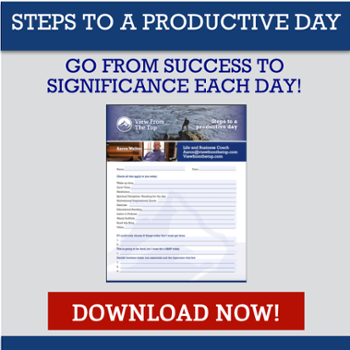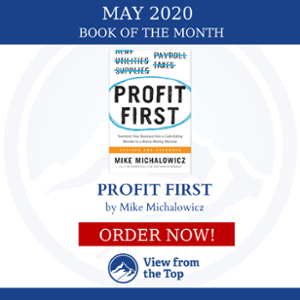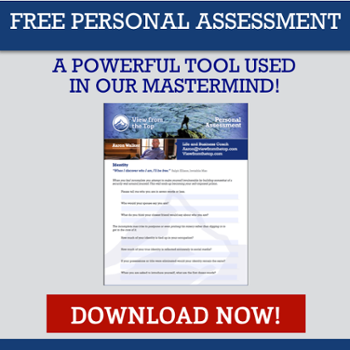.png?width=3200&name=What%20happens%20when%20trust%20is%20broken%20How%20do%20you%20work%20to%20repair%20it%20(1).png)
As the year draws to a close, reflect on the ways you have inspired trust in yourself over the last several months. How have you put more trust in others? How has that affected your work environment, your family, and your productivity?
Over the last several weeks, we’ve talked about gaining trust with those around you because of its importance for workplaces and relationships. We’ve pointed out its mutual benefits. Trust makes connections strong and enduring. Teams and organizations can only move forward at the speed of trust. But anyone who’s had trust broken or who recognizes that they’ve broken trust will tell you of its fragility.
Trust can be lost in an instant. So once we’ve established trust, how do we keep it? How do we maintain a reputation of trustworthiness in our circles? And what can we do if we’ve already lost it?
If you would value a community of other professionals who can help you build more trustworthiness into your character, visit our website or apply to join one of our mastermind groups online.
Foundations of Trust
Some people say that trust, once lost, can never be regained. They think of trust as a fallen tree in a forest that can never be righted again.
While I don’t think this is always the case, rebuilding trust may often be the exception for a number of reasons. We like to justify our poor behavior. We often continue in behavioral patterns simply because of habits that are familiar to us. Sometimes, we don’t know a better way. At times, our well-intended actions may not execute the way we thought, or others interpret a failure as a slight. Sometimes, we may not even realize someone has lost trust in us because they decided to either move on or to selectively share with us.
You don’t have control over someone’s feelings toward you, especially if they don’t communicate them to you. You can, however, control how you react to situations you know about.
What happens when trust is broken? How do you work to repair it? Though some circumstances and others’ emotions are outside of your purview, do you consider the fact that efforts to repair often establish an improved sense of trust?
In The Speed of Trust, Stephen M. R. Covey says that broken trust is an opportunity for a significant beginning. It’s a chance to get your act together and, “improve your character and competence, to behave in ways that inspire trust.” If trust is like a fallen tree, what can be built from its trunk and branches? How can you learn and make something new out of what remains? It’s hard work, but what you make of the opportunity is up to you.
Of course, the way to avoid the many hardships that broken trust brings is to not to violate your trustworthiness in the first place. How can you do that?
Plant the deep roots of good character. In your workplace, in your relationships, and anywhere else you find yourself, maintain qualities that demonstrate trustworthiness.
3 Qualities of a Trustworthy Character
If you want to maintain a character of trustworthiness, be sure these qualities take precedent in every area of your life:
1. Live with Integrity
Integrity isn’t something you only demonstrate when you feel like it or when it’s convenient. Integrity doesn’t just exist to make you look good. Your actual, deep-down character matters, and it will show itself in crucial moments. If you bear fruit, you don’t want it to be poisoned apples.
So, tell the truth with kindness. Take responsibility for your mistakes and failures. Keep commitments so others know they can rely on you.
Basic, faithful integrity will go a long, long way in maintaining trust with those around you.
2. Show Loyalty
Your team and your family have a right to your loyalty. How do you demonstrate that?
Generously give credit to others. In fact, go out of your way to defer credit. Covey gives great advice when he says, “Help create an environment in which everyone’s contributions are recognized and every person is acknowledged.”
As a principle, speak about others as if they will hear everything you say about them. (You never know what may get back to them, anyway!) Covey suggests that you think beforehand about your response when you find yourself in situations where someone bad-mouths another person.
If a situation arises where you must discuss another person, such as a workplace conflict or an evaluation with a supervisor, honestly ask yourself about the intent of the conversation. Do you want to help them? Do you want to see them improve? Or do you try to validate yourself by talking about their faults? Checking your motive will help you recognize any needed adjustments in the language you choose.
A few other important ways to live out loyalty: Don’t give away someone’s private information without their express permission. Try to represent others as best you can. Offer forgiveness freely. You’ll never make someone upset because you chose to show them loyalty.
3. Seek Accountability
None of us can manage to have a completely flawless character and make perfect decisions in every situation. However, we can get closer to that ideal with consistent encouragement and accountability from other trusted friends.
Accountability establishes and upholds greater trust. Whether in a workplace or at home, people feel more confident and are more likely to reach standards, meet deadlines, and accomplish goals when they have accountability. When a team holds each other accountable, they will be less likely to feel that anyone has unfair or preferential treatment.
Wherever you have responsibilities within your power, whether at work, home, or elsewhere, set up systems of accountability to fall back on. Make sure everyone clearly understands the expectations and consequences. By doing so, you create a reliable environment and a culture of trust.
In the movie, The Princess Bride, the gentle giant, Fezzik, tells his friend, “You be careful. People in masks cannot be trusted.” Instead of hiding ourselves from the world and only showing our “best qualities,” why not allow a trusted group of people to help you reach higher standards and bigger goals?
Do you have people in your life who can help you pull back the layers of self-protection so you can evaluate your priorities? Can they ask you hard questions about your interactions with others and how you spend your time?
An excellent way to experience accountability and growth on a regular basis is by joining a like-minded group of professionals who will challenge you to build a lifestyle of trust. Reach out to us at our website and apply to join one of our mastermind groups online.





